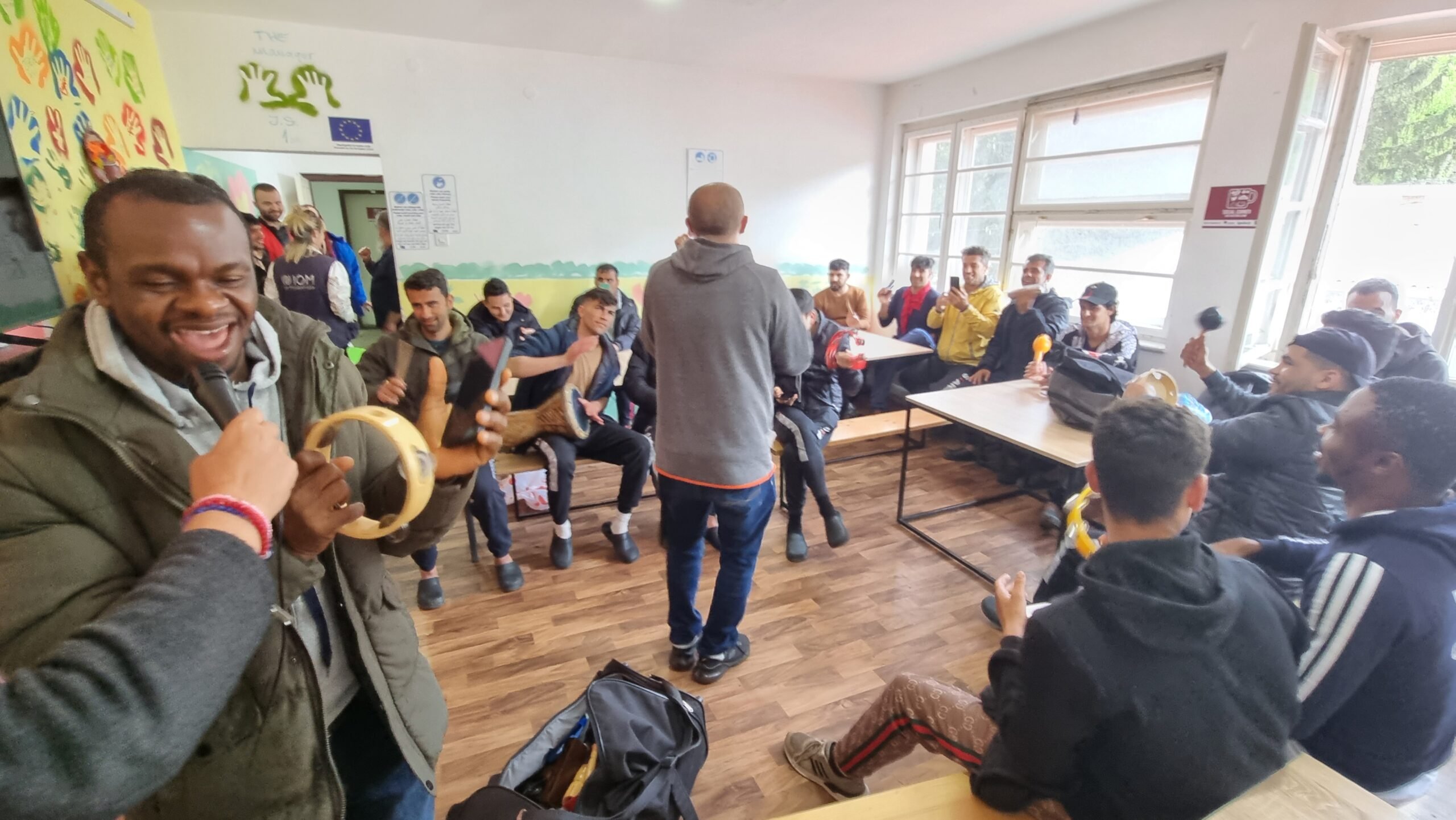When it comes to the refugee crisis, it is not so rare that women and children are seen as victims, while unaccompanied men and boys are perceived as potential terrorists, security threats and violent criminals. Political actors, the media and others have too often pandered to xenophobic and fear-mongering discourse over ethnic migrant men, they are stereotyped as religious, authoritarian, and illiberal or hypersexual. This gendered approach to assessing vulnerability affects refugee men’s access to humanitarian services. Most psychosocial support programs and community activities target women and children, resulting in a gap in service provision.
The situation of unaccompanied boys and single men is too rarely understood and considered. The invisibility and, at times, stigmatization that affects them deprives them from the assistance they need. At Musicians Without Borders , we believe that everyone affected by a crisis or disaster – regardless of sex, age, and sexual orientation – can experience some form of vulnerability and consequently should be able to access help and support. This should not be at the expense of others, but alongside others.
That is why, our Music Bus team in Bosnia decided to organize a music workshop in Blažuj, – a secluded refugee camp with only male inhabitants. Haris Abdagic, our Field Coordinator for Welcome Notes BiH, wrote the following about visiting the camp and the positive atmosphere he and Tony (workshop leader) experienced there.
Blažuj. A migrant camp for men 13 kilometers from Sarajevo with a bad reputation. “There are only single men there… beware… it can be dangerous… it’s unpredictable… unsafe…”. Even though Tony and I are very resilient, these warnings succeeded in creating prejudices – and even a touch of fear in us. Nevertheless, that day had come, we finally managed to organize and coordinate our first music workshop in camp Blažuj.
And immediately, as dictated by Murphy’s Law, we missed the road. Instead of looking for the main road on the map, we decided to listen to a local, who was full of confidence as he explained to us: “You turn right at the gas station. You will soon see an underpass. You pass, drive another 200 meters and there you are.” We successfully reached the underpass, but encountered a huge flood. I was already turning my Citroen around, to get back onto the main road, when I saw Tony’s Toyota (actually, I saw half of Tony’s Toyota) making it’s way through the water. If Tony could make it through, so could I. I drove after him.
When we finally entered the camp, few stray dogs sunbathe on the concrete, ignoring the cats. Something like a campfire is burning nearby, on the other side is a babbling brook, two policemen are playing table tennis, and giant pieces are scattered on a large chessboard.
The camp has been setup around Yugoslav revolutionary Comrade Tito’s abandoned barracks. Everything is old and “worn out”… except the people. It may sound like a platitude, but it was really an incredible amount of positive energy, warmth and welcome with which the residents and employees of the camp greeted us. So incredible and (due to our prejudices) surprising, that Tony and I turned into two boys and produced the “craziest” and best music workshop ever. We drummed as if calling for rain, sang, played and laughed a lot. There was also a simple sound system, so we called the camp residents to join us. The social corner was full of people: residents of the camp, employees, policemen, us…

Afterwards, with a snack, we talked with them, and those wonderful, smiling, smart people thanked us and talked about the benefits of this type of content and asked us not to forget them and to visit them regularly.
We discovered Blažuj.
Before leaving for home, we talked with the camp employees and found out that there has never been the slightest bad incident, that the camp residents are very peaceful and positive, and that the camp’s reputation was based on nothing.
Toni and I slowly headed home. This time we picked the main road.






